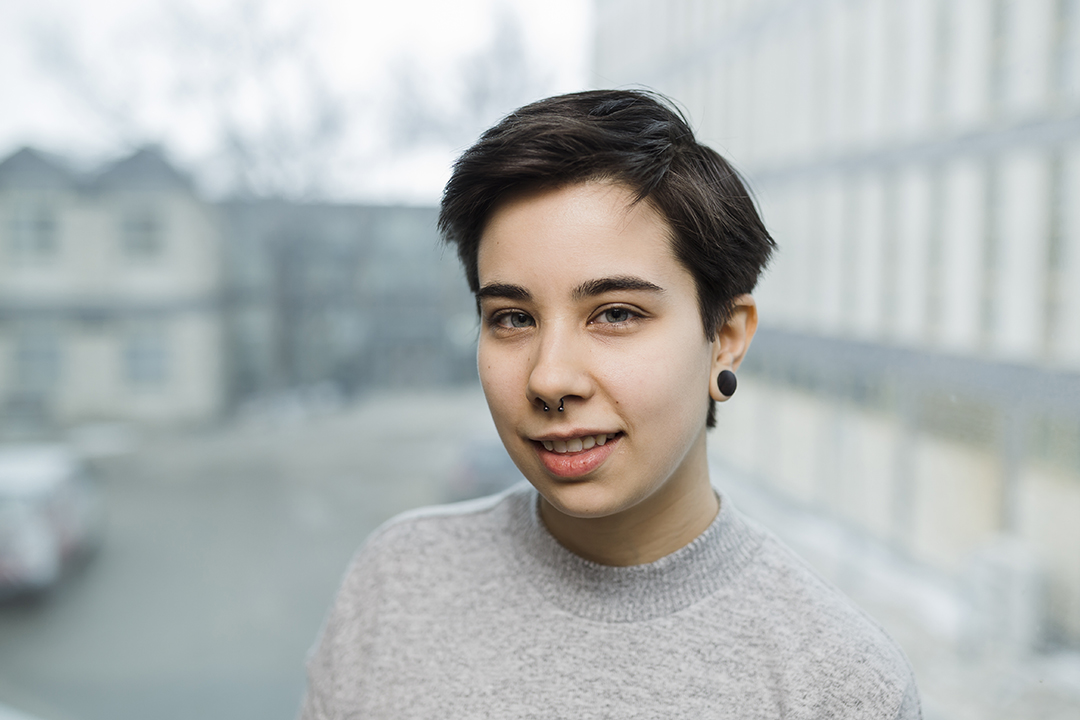
International studies student honoured for academic excellence
Ashley Vols is taking a personal approach to her global impact.
By John ShellingThe fourth-year International Studies student at the University of Saskatchewan says she has “experienced a considerable amount of personal growth” while working on her minor in Critical Perspectives on Social Justice and the Common Good.
“Understanding that every action, even at a personal local level, has broad implications, has allowed me to evaluate myself and my surroundings,” Vols said.
This year, her actions in the classroom have garnered her an Indigenous Student Achievement Award for academic excellence. Her studies focus on Indigenous and migrant populations in the Canadian context.
The Indigenous Student Achievement Awards are one of the highlight events of Indigenous Achievement Week, from Feb. 4-8. Each year, the university honours Indigenous students to recognize their academic accomplishments, leadership, research endeavours or community volunteerism.
Vols was nominated by the College of Arts and Science for the award. We caught up with Vols to ask her a few questions about what motivates her.
Why did you choose International Studies?
I chose International Studies because it is an interdisciplinary program that allows students to tailor their education to their unique interests. For me, that meant being able to apply my education in topics at the international level to my local community. I have been able to study diverse subjects, from gendered economics to senior-level history and sociology courses. There are distinct educational advantages that come with a program such as international studies. The possibilities are endless. Being able to bring multiple perspectives to any given class is a great advantage.
What advice would you give to a first-year Indigenous student?
My identity as a Métis person did not play a large role in my academic life until recently. Since acknowledging my Indigeneity, I have been able to reflect on personal experiences through a unique lens and apply that new knowledge towards a more holistic learning experience. If I had to summarize that into a piece of advice, I would tell first-year Indigenous students to focus on making personal connections with the material instead of relying on memorization, and to not be afraid of showing some personality in class. Make it fun!
What plans do you have for the future?
I recently took a class called Topics in Ethnic Relations, and wrote a paper on Indigenous and newcomer relationships in a Canadian multicultural context. Writing the paper was a fascinating process and it sparked a great interest in me. I would like to continue studying the topic at the graduate level. I hope to foster real-life engagement and understanding between the two groups through volunteering and programming, as I think there is a lot of potential power in that relationship.
Has there been someone in your life that has inspired you to get to where you are today?
Two people stand out the most: my mother and my aunt. They are two of the strongest and independent women I could ever imagine knowing. They have always been role models for balance and composure in my life. I’ve learned a great deal about vulnerability, resilience, and thoughtfulness from them. I owe a tremendous thank you to them for being constant sources of light and direction.
This year’s theme of the Indigenous Achievement Week is Powerful Voices. If there is one thing you can use your voice for in this moment, what would it be for?
Embrace vulnerability! Say yes to challenges, despite being afraid of the potential outcomes. Believe that opportunities are presented to you because you deserve them. Use that momentum and become a force to be reckoned with.
